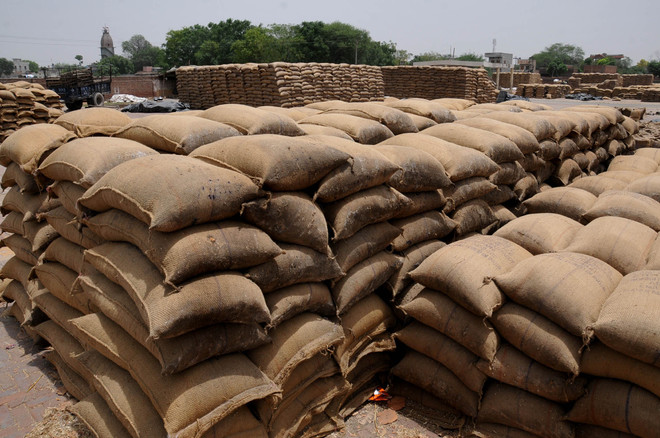Govt offloads over 4 MT of wheat in open market to curb prices
By Sandip Das
To curb the rise in prices, the government has offloaded 4.1 million tonne (MT) of wheat under the open market sale scheme (OMSS) by the Food Corporation of India (FCI) to bulk buyers this fiscal.
On Wednesday, the FCI sold 0.28 MT of wheat to 2,420 bidders in the weekly e-auction, which commenced in June, against 0.3 MT offered on sale for the flour millers and processors.
According to a food ministry official, the weighted average selling price of wheat under OMSS on Wednesday’s auction was Rsb2,278.58/quintal against the reserve price of Rs 2,127.87/quintal.
The minimum support price of wheat for the next season (2024-25) is Rs 2,275/quintal. The wheat procurement season for the next marketing season will commence on April 1.
The government is aiming to sell 10 MT of wheat through OMSS till March 31, 2024, to boost domestic supplies.
“After maintaining a buffer of 7.46 MT of wheat on April 1, we intend to sell all the surplus grain stock of FCI in the market to curb prices,” the food ministry official told FE.
At present, wheat stock with FCI is 19.78 MT against the buffer of 13.8 MT for January 1.
In addition, 44,246 tonne of wheat has been lifted by Kendriya Bhandar, farmers’ cooperatives Nafed and National Cooperative Consumers Federation (NCCF) from FCI at the MSP rate for converting into ‘Bharat Atta’, which is being sold to consumers at Rs 27.5/kg. FCI has allocated 0.25 MT of grain to these agencies.
As per the earlier policy, the corporation had been selling surplus wheat to bulk buyers like flour millers only during the lean season (January-March).
Rate of increase in wheat prices fell to 7.61% last month on year from 9.3% in August.
In April 2019, India raised the duty to 40% from 30% as domestic prices had dropped, to discourage cheaper wheat imports. Last month, the government reduced stock holding limits for wheat for traders, wholesalers and retailers to 2,000 tonne from 3,000 tonne, imposed three months back.
This article has been republished from The Financial Express.

